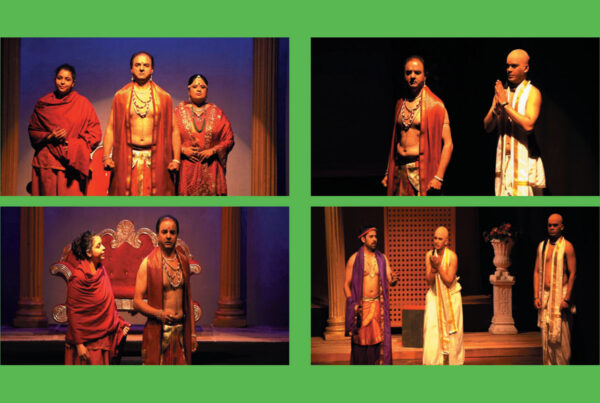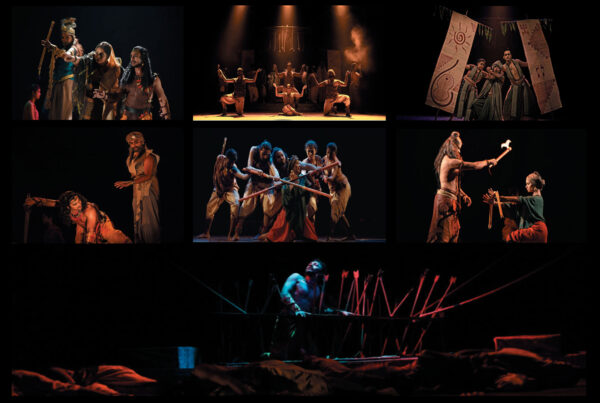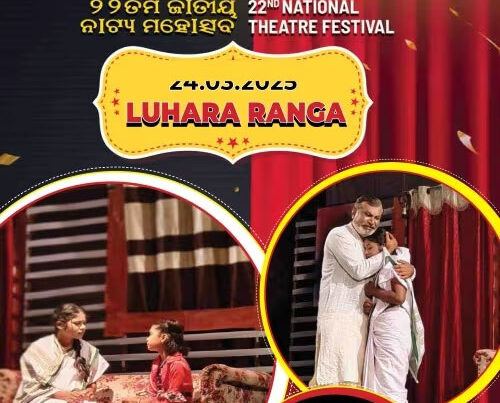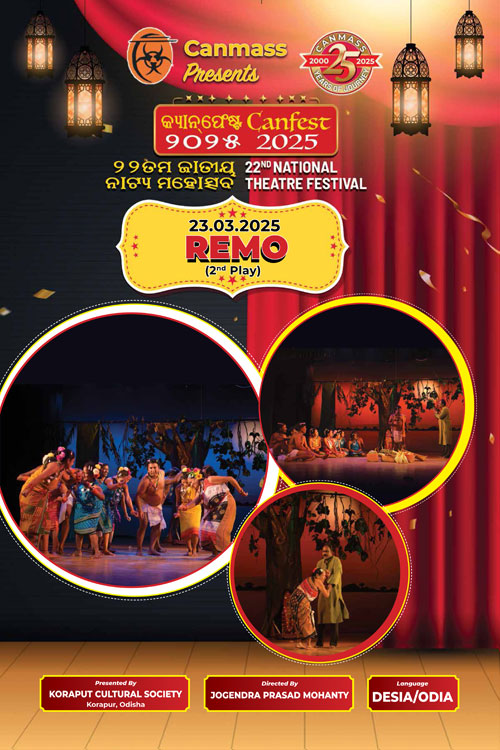
REMO
23.03.2025 (Sunday)
GROUP: Koraput Cultural Society, Koraput, Odisha
DIRECTOR: Jogendra Prasad Mohanty
LANGUAGE: Desia/Odia
DURATION: _:_ mins
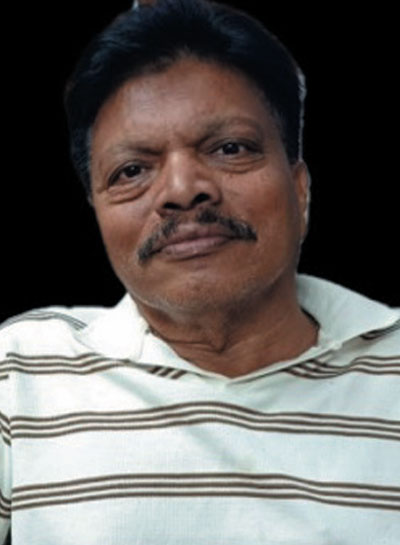
The Director
Mr. Jogendra Prasad Mohanty is a distinguished director known for his impactful work in tribal theatre, particularly with the play REMO. His dedication to showcasing indigenous culture and traditions has made him a prominent figure in promoting tribal narratives through the performing arts. REMO reflects his deep understanding of tribal life, capturing the essence of tribal customs, beliefs, and social issues. Through his direction, Mr. Mohanty brings authenticity and sensitivity to the portrayal of tribal communities, making significant contributions to the preservation and promotion of their cultural heritage.
The Group
The Koraput Cultural Society (KCS) was established in 1989 with registration No. 53192(89-90) and affiliated to Odisha Sangeet Natak Academy, Bhubaneswar. KCS is a prominent organization dedicated to preserving and promoting the rich cultural heritage of the Koraput district in Odisha, India. Established to foster appreciation for the region’s diverse traditions, KCS plays a key role in showcasing tribal art, music, dance, and literature. It organizes cultural festivals, workshops, and exhibitions that celebrate the unique tribal identities of Koraput, with a focus on nurturing local talent and encouraging inter-cultural dialogue. The society aims to bridge the gap between traditional and contemporary expressions of culture, contributing to the cultural vitality of the region.
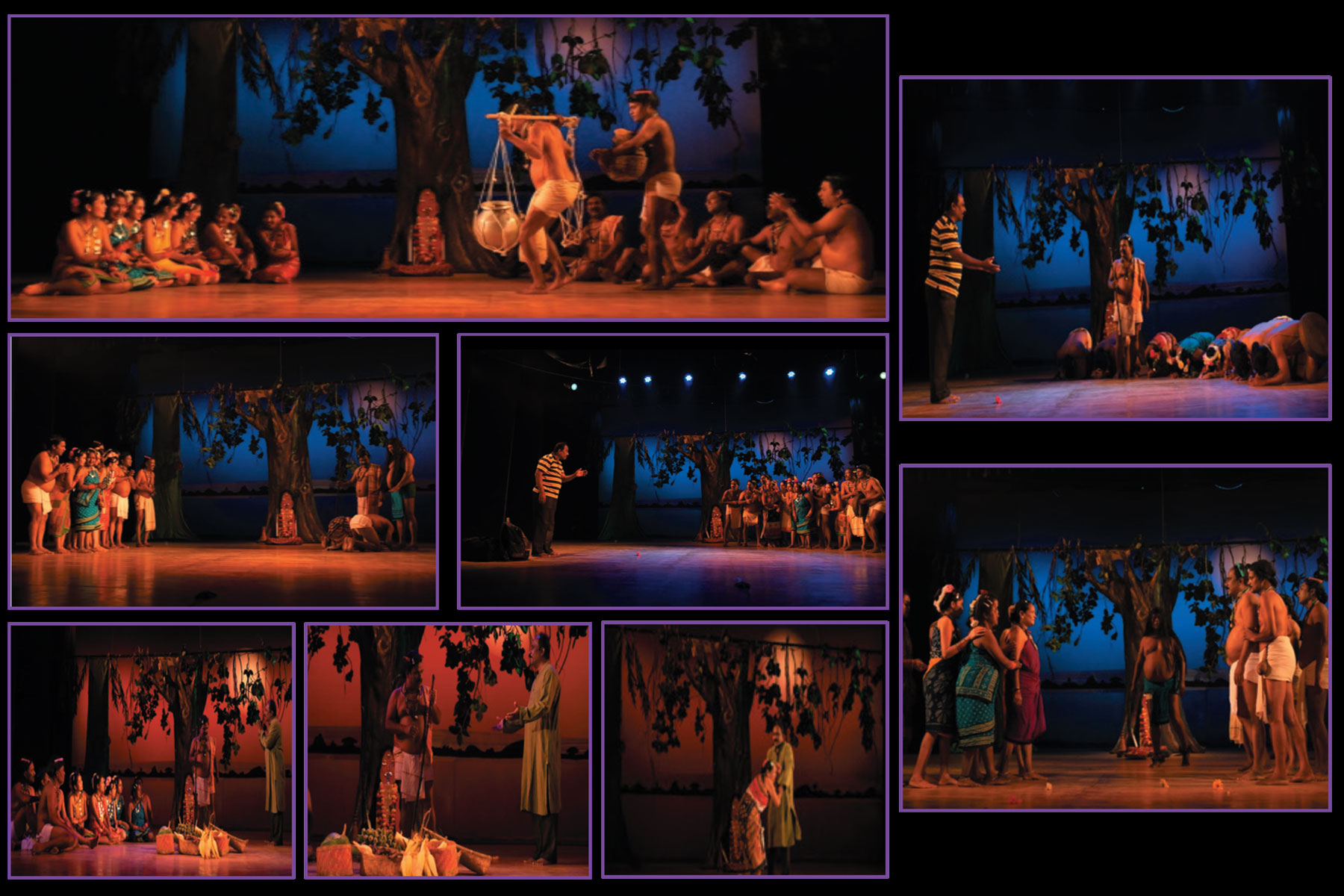
The Play
Koraput region of Odisha with her tribes who enjoy the joys of life as they ever did thousands of years ago is heaven’s own. Here nature and man vie with each other to make living joyous. Tribal society is an enigma to the world of culture and heritage.
The variation in physical and biological environment of their habitat is equally amazing. The exceptional primitive tribal community “BONDA” dwells in remote Bonda Hills of Koraput region. They are unpredictable in their behavior and recent interference. Equipped with lethal bows and arrows the Bonda male will not hesitate to release his arrow straight to the heart of his opponent at the slightest provocation. The Bonda highlanders claim to the original inhabitants of the region and identify themselves “REMO”.
Kadamguda is such a Bonda village. Once a young teacher gets appointment and reaches the highlanders to open the school. The villagers first fail to understand him and accept him as a guest after much hesitation. The teacher tries his best to initiate to the knowledge of modern civilization and teaches ‘alphabets’. The people engaged ‘Gulang’ wife of ‘Gusang’ to take of the teacher. The teacher though fails to understand their language, understands their heart and soul. The simplicity and innocence attract him so much that he unknowingly falls in love with ‘Gulang’. When the growing love finds its physical expressions ‘Gulang’ shows resistance, but she too was fascinated by the teacher and love him.
Conflict arises regarding the relationship. Aggressive, unpredictable Bondas with dreaded weapons surround the teacher and ask to marry ‘Gulang’. The teacher decides to marry her to bring the community towards mainstream of modern civilization but gradually transforms himself into….Aboriginal…… Tribal Culture. He consciously accepts and admires the rich human values of the highlanders and becomes “REMO”.
Director’s Note
“Theater is a powerful way to tell stories, especially those that have been passed down through generations. This play is a tribute tothe rich traditions, culture, and wisdom of tribal communities. It brings to life their stories, music, dance, and deep connection with nature. Tribaltales are full of meaning. They teach us about living in harmony with the earth, respecting ourguests and valuing our roots. Through this play, REMO we hope to keep the stories of tribal nature alive and share them with a wider audience, and bringing this play to the stage has been incredible journey. Tribal performances are not just about words; they are about emotions, movement, andrhythm. The actors have worked hard to bring authenticity to their roles, learning from eldersand immersing themselves in the culture. Their performances are more than just acting-theyare a heartfelt expression of their heritage. This play also highlights the challenges that tribal communities face today. Many struggle to protect their traditions, and way of life in a rapidly changing world. We hope this performance will not only entertain but also inspire people to appreciate and support indigenous cultures. I am deeply grateful to the actors who gave their all emotions in this play, and the entire team who made this possible. I invite you to watch with an open heart, to feel the rhythm of the drums, and to connect with the spirit of the stories. Let this be more than just a play-let it be an experience that stays with you.”
Jogendra Prasad MohantyDirector of REMO (Drama)
Cast & Credits
Aadu- Kali prasad das
Samra- Supriyo Biswas
Mangulu- P.Srinivas Rao
Budu- Jitendra Bagh
Guru- Jiten Kuldeep
Sukra- Brundaban Behera
Sania- Rajendra Majhi
Gulang- Dambru Nayak
Sisa-Manoj Khosla
Dinabandhu- Durga Prasad Rath
Gusang- Sibani Khara
Mangali- Suman Khara
Budhei- Kasturi debi Khara
Gurubari- Birajini Bhatra
Sanei- Kunmun Khemundu
Samari- Jyotsna Bagh
Sanadei- Kabita Gouda
Ashok kara
Chandrama- Meena kumari Machha
Nanda kishore Guru

